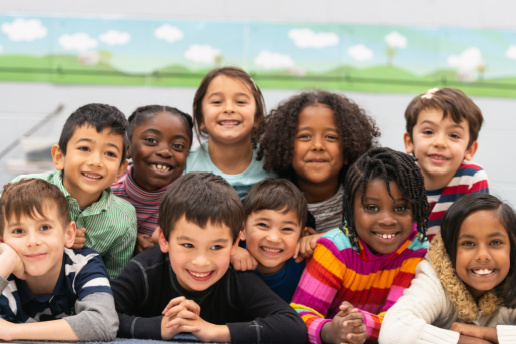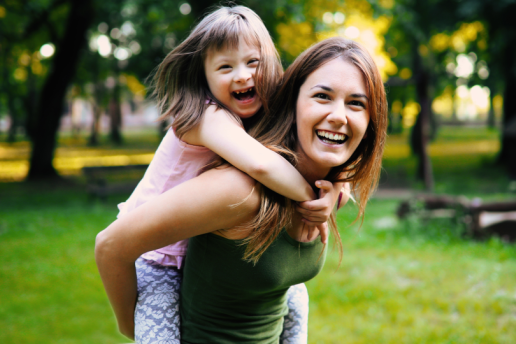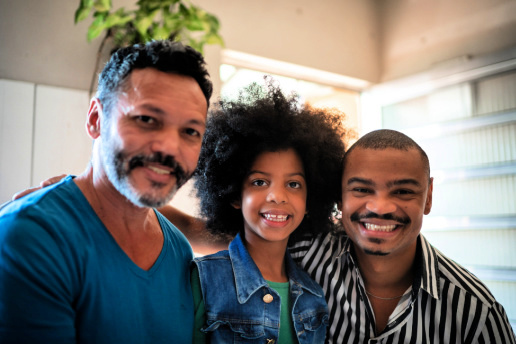 We’ve all heard the adage “words matter.” Indeed, in this fast-paced social media culture, new words and definitions are evolving faster than most of us can keep up with. As adoptive and foster parents, we are acutely aware when the world around us gets adoption language wrong. We may not be as aware of what positive adoption language is and why it matters.
We’ve all heard the adage “words matter.” Indeed, in this fast-paced social media culture, new words and definitions are evolving faster than most of us can keep up with. As adoptive and foster parents, we are acutely aware when the world around us gets adoption language wrong. We may not be as aware of what positive adoption language is and why it matters.
Why Positive Adoption Language Matters
The nature of the English language is one of change – evolution, adaptation, and personalization. We understand that it is daunting to keep up with positive adoption language. It sometimes feels awkward, especially when it’s new to us. We might also feel as if we are being “overly sensitive” or “too politically correct” to focus so intently on adoption language.
So, let’s first examine WHY we who are connected to adoption should try to incorporate it into our daily use. Understanding the “why” often helps us implement changes with which we might not be fully on board or that feel unwieldy when we are practicing.
 1. Positive adoption language centers on the person about whom we are speaking, rather than the label attached to the person.
1. Positive adoption language centers on the person about whom we are speaking, rather than the label attached to the person.
For example, in the world of special needs, one no longer says “my Down syndrome kid.” Instead, we have learned as a culture to say “my child with Down syndrome” as a way of honoring that this child is not her diagnosis.
Positive adoption language says that my daughter is not my “adopted child,” she is my child whom we adopted, placing her as the focus rather than the identifier of how she came to our home.
2. Choosing positive adoption language communicates how we value the practice of adoption in building a family.
Using honoring words that respect each member in the triad tells those around us that we don’t see adoption as a “plan B” to create a family – ours, or anyone else’s.
Positive adoption language about adoption invites others to lay aside stigmas and consider that adoption is an excellent choice for many members of the triad.

3. Most importantly, speaking of adoption in positive, respectful ways tells our kids that we value the process by which they have come to our lives.
Positive adoption language spoken with and to our kids lays a foundation for confidence and emotional security. Speaking of adoption in these positive ways also sets a tone of respect and value about the other triad members who were part of the process, like your child’s birth or biological mother or other extended birth family members.
Do you need help talking to your kids about adoption? Check out our “age and stage” series of posts:
Talking About Adoption, Part 1: 0-5 Year Olds (blog post)
Talking About Adoption, Part 2: 6-12 Year Olds (blog post)
Talking About Adoption, Part 3: Talking with Tweens and Teens (blog post)
The “Say This, Not That” of Positive Adoption Language
Over the years, the way that our culture talks about adoption has changed dramatically. We cannot promise that it won’t continue to change – in fact, we can pretty much guarantee that it will continue to evolve. Bear that in mind as you review this list of suggestions for terminology. When in doubt, you should ask the person to whom you are referring what words are most preferred by them.
Say This:
Birth Mother/Father/Parents
Biological Mother/Father/Parents
Parenting her baby
Make/Plan/Choose an adoption plan
My daughter/son/child
Unintended pregnancy
Born to unmarried parents
Terminated parental rights
International or intercountry adoption
Child with special needs/Waiting child
Not This:
Real Mother/Father/Parents
Natural Mother/Father/Parents
Keeping her baby
Giving up/placing for adoption
My adopted daughter/son/child
Unwanted pregnancy
Illegitimate
Surrendered/Released/Relinquished
Foreign adoption
Handicapped/Available child
Keeping Our Kids at the Center
Of course, the list above is certainly not exhaustive — there are so many other words and terms to consider. As we said, the nature of language – any language – is that it evolves (rapidly!) to meet the needs of and reflect the society in which it is being used. However, when we intentionally choose current and positive adoption language, we are elevating the people to whom the conversation matters the most: our children and their families.
This was originally posted by Creating A Family on April 7, 2021. View the original post here.


